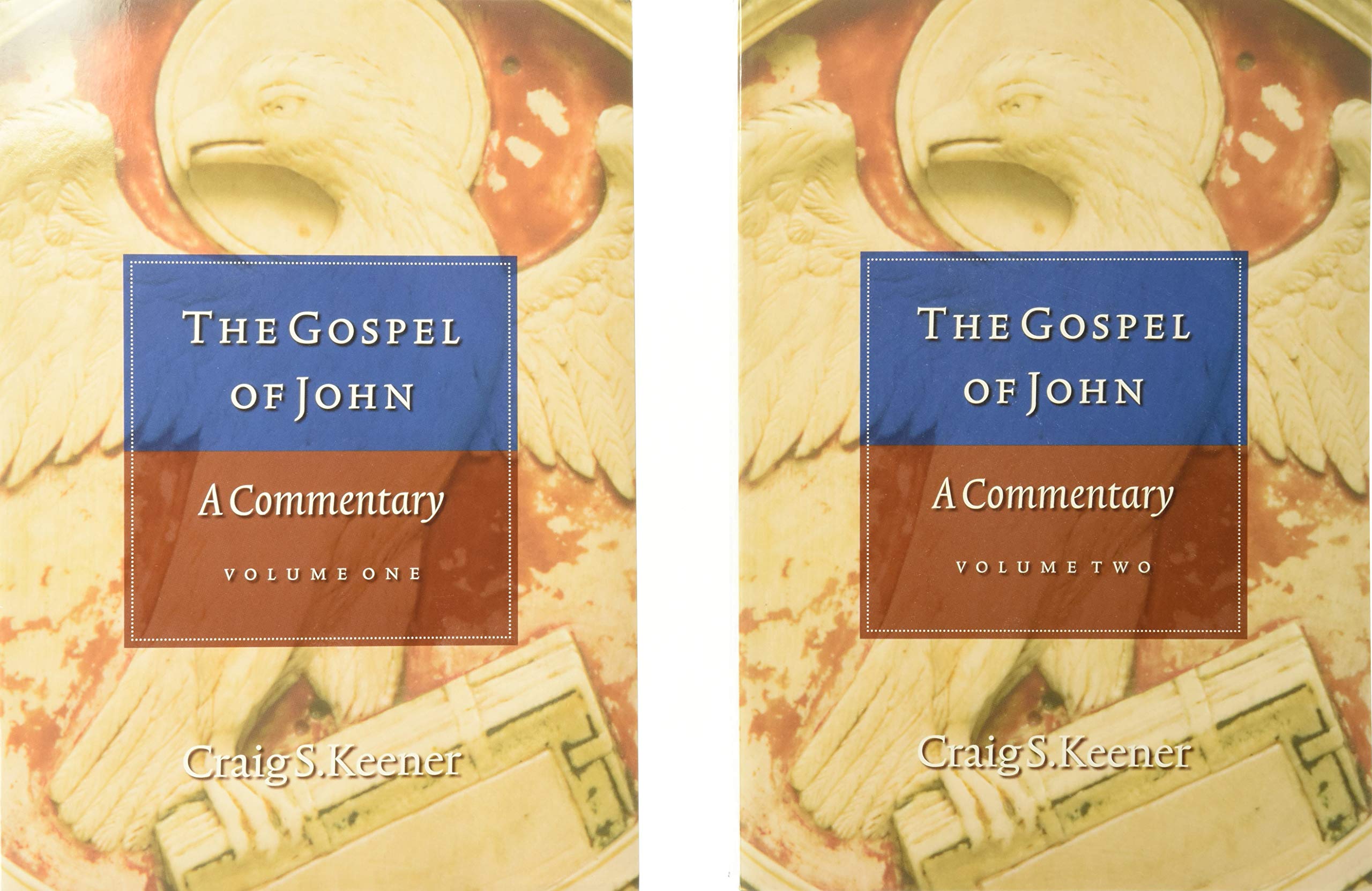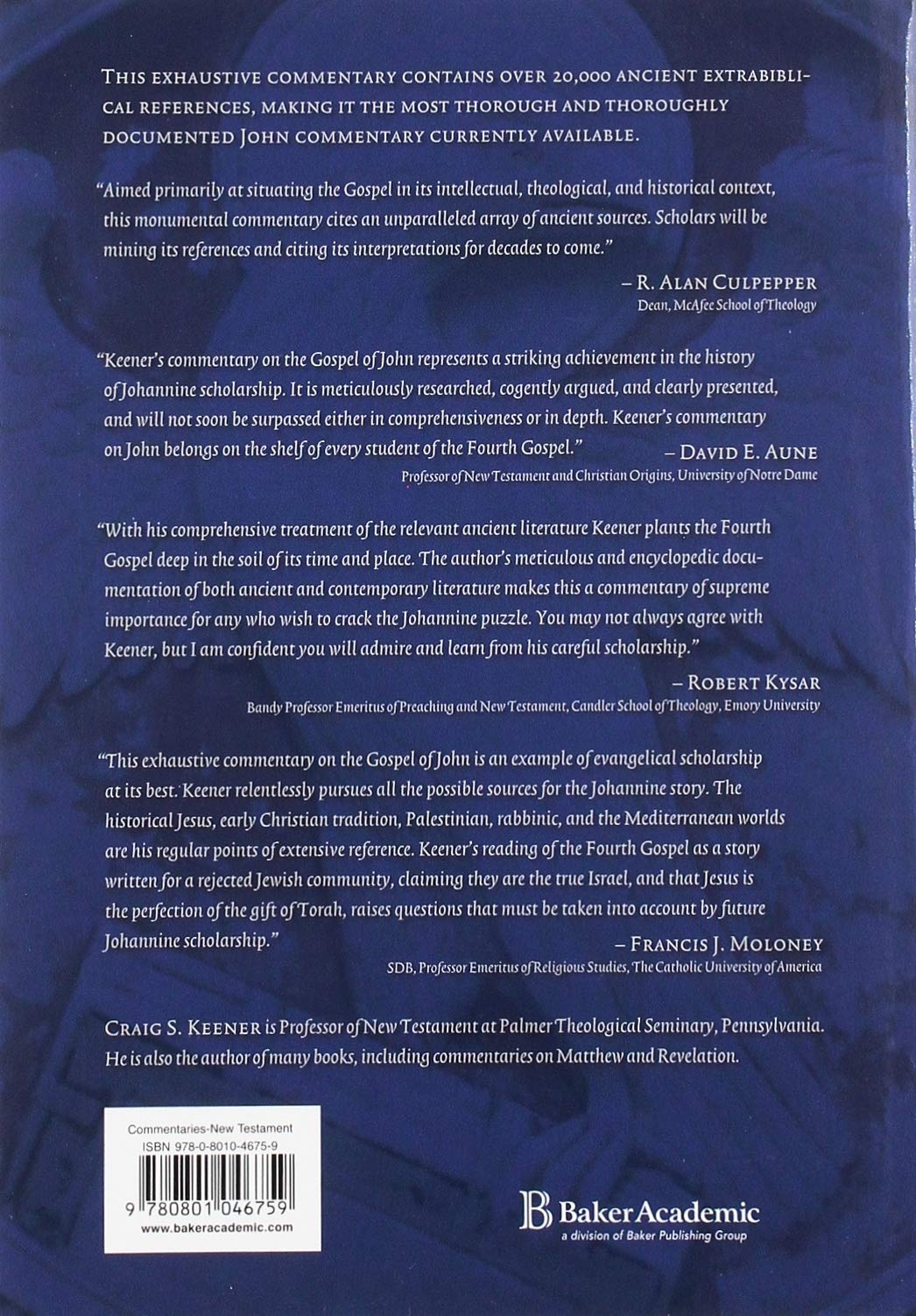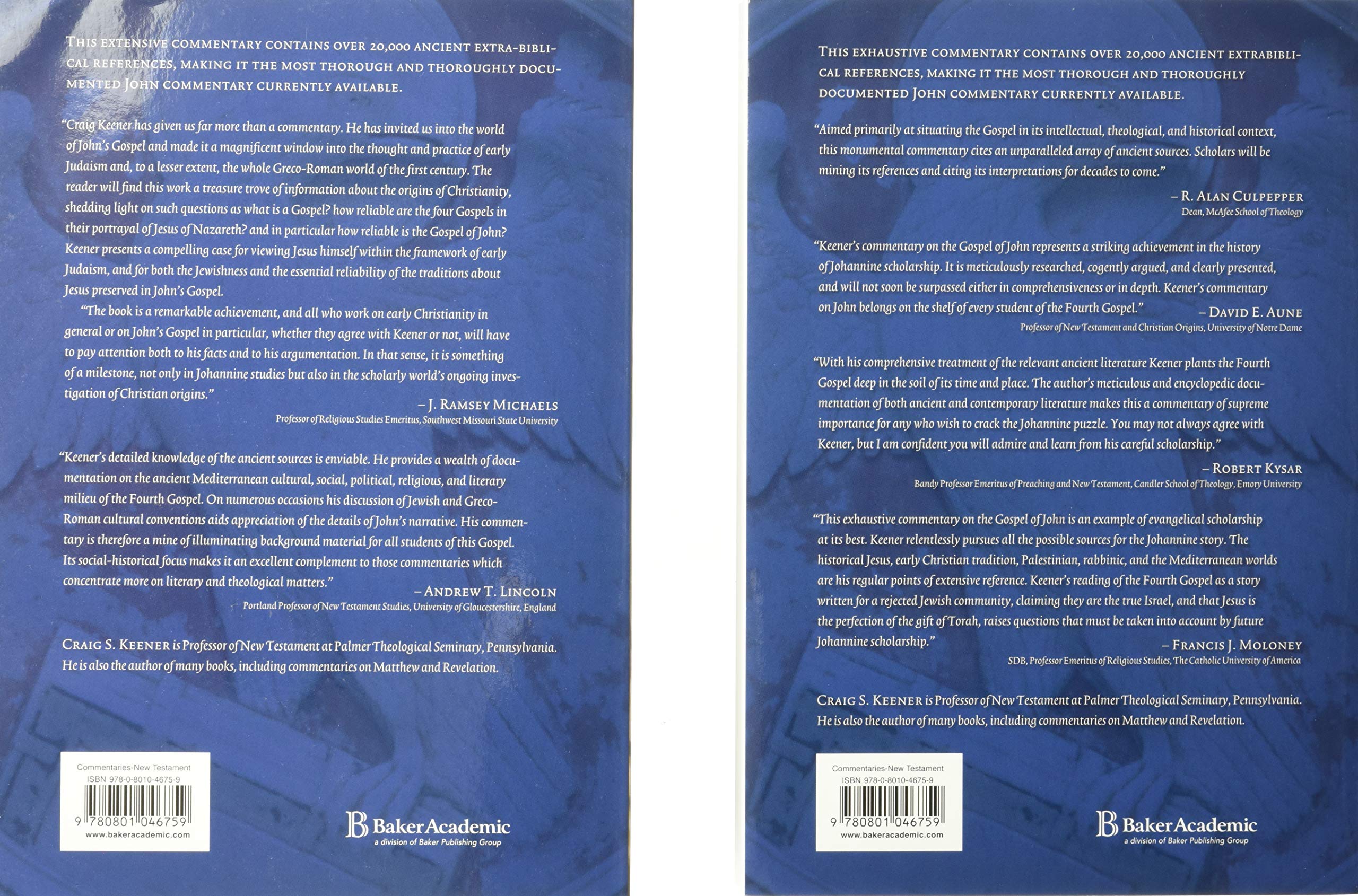



Full description not available
N**H
One of the finest commentaries on John available
A very high quality exposition of John's gospel, with background, history and lots of insight into the text. I am a huge fan of J Ramsey Michaels NICNT but this is "as good" if not even better. This is certainly amongst the top commentaries available and will open your eyes to the Greek and help you see different possible interpretations. If you haven't got the NICNT you need this - if you do have it you could still benefit from it.
I**S
Five Stars
One of the best contemporary commentaries of John.
A**R
Five Stars
vg
R**S
John's Gospel battles against the 'ancient texts'
By any measure this is an extraordinary commentary – in my knowledge it is unique in the attention the author gives to extra-biblical sources. The bibliography fills a hugely disproportionate amount of space in the second volume. I’m left wondering what the author’s motivation was in adopting this peculiar approach to a biblical commentary. Impressive it most certainly is! But it is difficult to see how worthwhile it was to devote so much space and attention to texts that, in the overwhelming number of cases, have absolutely no bearing on the meaning of John’s text.In many cases – I mean in too many cases – having made our tedious way through all manner of references and quotations and allusions to ancient texts from just about every ancient author who ever lived to write even a line or two on a bit of parchment or papyrus that contained a word or phrase that appears in John’s Gospel – regardless of the author’s background, intention, philosophy or culture – the author’s own exposition frequently begins with a ‘But…’. This is not surprising, given the nature of John’s Gospel as a biblical text – as such requiring a hermeneutical approach fundamentally different from the neutral position a scholar adopts towards any other text. It is here that I have my most serious reservations about Keener’s distinctive method: in practice, if not in intention, it is a method that demotes John’s unique text to the ranks of any other ancient text, to which it simply cannot, and must not, in any respect whatever be compared!Historical-grammatical hermeneutics is essentially a rationalistic humanistic ‘neutral philological science’; it is consequently exposed to the simple but overwhelming criticism that as a method it is independent of the Holy Spirit: it may be ‘practised by a believing or an unbelieving scholar [whom it] exposes to the danger of a neutrality which is forbidden by the object and falsifies it.’ (Hans Urs von Balthasar)‘[…] in the final analysis “it is not human wisdom which Scripture needs for the understanding of what is written, but the revelation of the Spirit, in order that we, discovering the true meaning of the things it contains, might draw abundant profit from them”’ (Chrysostom quoted by Henri de Lubac)The author’s own comments and conclusions regarding John’s text are often quite brief and, it must be said, in many cases not especially penetrating or illuminating in comparison with the standard commentaries of Bultmann (I refer to his exegetic insights, not his perspective on the nature of John’s Gospel), Schnackenberg, Beasley-Murray, Moloney, et al.
Trustpilot
1 month ago
1 month ago